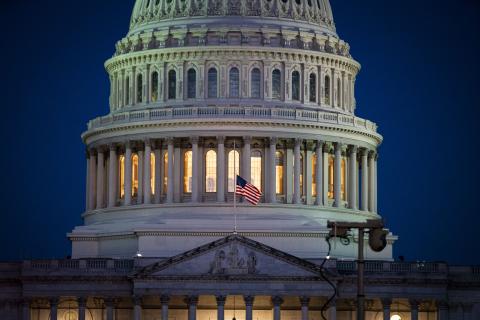The second federal government funding deadline of March 22 is approaching. The Institute continues to monitor the situation to ensure business continuity in the event there is a partial shutdown.
UPDATE (March 21, 2024): The second federal government funding deadline of March 22 is approaching. The Institute continues to monitor the situation to ensure business continuity in the event there is a partial shutdown. More information will be provided as the situation develops.
***
UPDATE (March 1, 2024): Lawmakers have passed a continued resolution to extend the deadlines to secure funding for the U.S. government – temporarily averting a federal government shutdown. The new deadlines are set to expire on March 8 and March 22. The Institute continues to monitor the situation and will provide updates as the situation develops.
***
The United States government is nearing the extended deadlines to finalize an agreement on federal spending for the current fiscal year, which began on Oct. 1, 2023. Congress established two extended deadlines in January to secure funding for the U.S. government through the fiscal year, with a March 1 deadline for some agencies, and a second deadline for the remaining agencies on March 8.
If an agreement is not reached by the March deadlines, it will result in a federal government shutdown, which will affect many programs, including federal contracting work performed by Georgia Tech. Of the two deadlines, the March 1 deadline will have a lesser effect on Georgia Tech’s funding sources. Currently, Georgia Tech receives approximately $100 million per month in federal funding for its research activities.
“We have been planning for a potential federal shutdown for quite some time. As we have anticipated in previous scenarios, most Institute operations would not be immediately affected,” said Jim Fortner, vice president and deputy chief business officer for Administration and Finance. “However, a prolonged federal shutdown would require measures to preserve cash and maintain campus operations.”
Leadership continues to monitor the situation and is ready to implement strategies to help ensure business continuity in the event of a partial or full federal government shutdown. Mitigation strategies include monitoring cash balances, accelerating federal invoicing, and assessing the need to defer major purchases and non-essential travel. More information, including how specific federal agencies are affected, will be provided as the situation develops.

